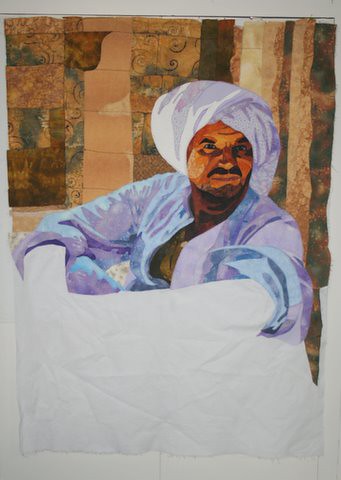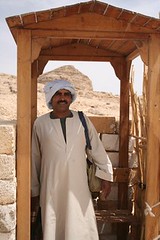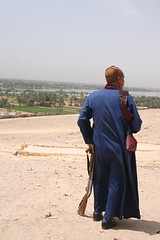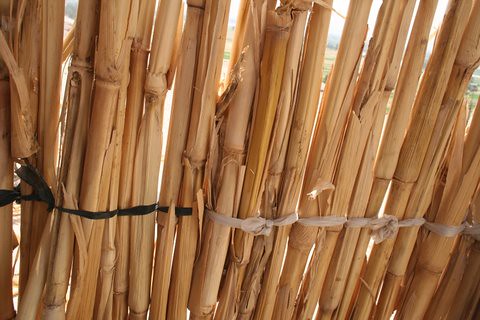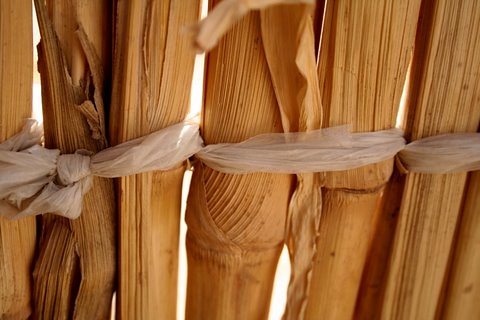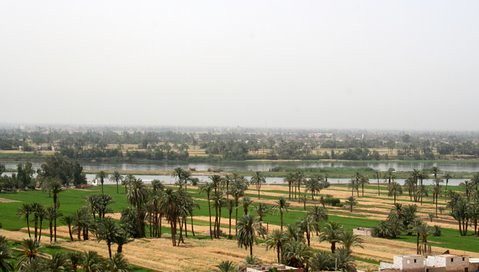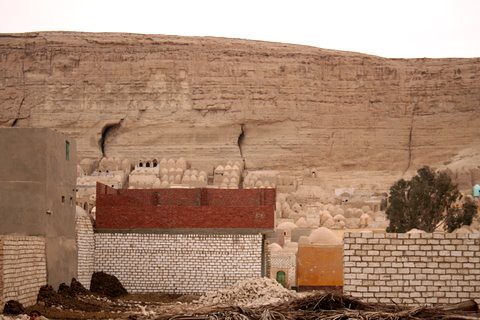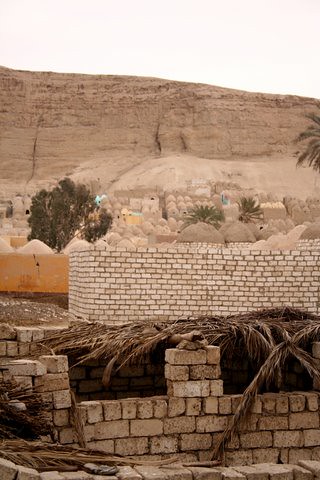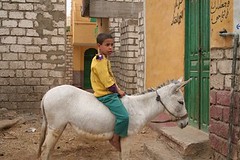We are in the middle of khamseen - the dust storm season. It is supposed to last fifty days, and khamseen is literally fifty. All day the dust has been blowing in from the desert, carried by a hot hot wind. There is grit everywhere. This is not the sandstorms I imagined with waves of heavy dense sand filling every crevice, but is much more insidious. It is a fine sand that hangs in the air for days after the wind sweeps it into the city. It banks up in the corners of our marble steps, and you can feel it under your feet, in your hair and between your teeth. Every so often a particularly vicious gust flicks dirty dust into your face.
The khamseen has blown in Summer. Egyptian summers are unrelenting. The heat just goes on and on. Many people leave for the summer months - Egyptians flock to the north coast where a breeze from the Mediterranean makes the heat much more bearable and expatriates just go home. Today was 36 and while it was dry it was really unpleasant walking around. This is the time when the rough and unkempt pavements, the need to walk to shop, and the irritations of life in Cairo seem to be most hard to stand.
We have a surfeit of roses. The bushes are smothered in buds and every day more have unwrapped the tightly curled petals. They are stunning - velvety and richly scented. You can smell them when you walk into the house as Gamal arrives every morning with a new collection.
He makes floral arrangements for me. They are like children's play gardens in many ways, but I love the fact that he brings them in with pride and affection and would not change them for anything. No - actually - for dinner parties I do tweak and manipulate them a bit. This morning he was setting them up in the area near the kitchen and carefully shaking dust from the hearts of the dark red roses. It reminded me of shaking sand from my shoes after being in the desert.
We made some food for an Embassy lunch today, with Ahmed cooking. It is a very strict fasting time for Coptic Christians and they eat no meat, cheese, eggs, milk, butter or animal products. We now make a good line in fasting cakes and usually have one for dinners as I can never work out which are fasting times and which are not - other than Lent and every Wednesday - but there are actually many more.
Today Ahmed made khoshary, the Egyptian national dish - rice, macaroni, brown lentils, chickpeas, and a spicy tomato based sauce which starts with the peeling of about four kilos of tomatoes. It is then topped with a good spoonful of very brown and crunchy fried onions. It is almost all carbohydrates, with pulses for protein, and I was horrified when I first saw it. In fact - it tastes good and is, in my daughter's words, "the perfect student food."
Ahmed is a master at khoshary. When the pasta is cooked and drained but still steaming he throws in the oil that fried the onions, shakes it quickly and slaps the lid back on. the pasta absorbs the flavour and even one piece of macaroni is richly earthy and smoky from the oil. He crushes several cloves of garlic and throws them in with the drained lentils, taking the garlic out again before he layers all the ingredients into the serving dish.
With the khoshary he made sandwiches - small discs of Egyptian bread sliced across and pulled open , lined with frilly lettuce and stuffed. He made tuna and fine chopped pepper salad in one lot for those not fasting, and roasted Mediterranean vegetables - tomatoes, eggplant, fennel, onion wedges, red and yellow peppers, cooked with olive oil and rosemary with fresh basil and mint added at the end for everyone.
I had gone out early to pick up fresh lettuce and to buy some of the vegetables for roasting.
Groups of young teenagers hang out on the corner near the coffee shops and the supermarket. This morning in the dust they were fooling around a bit. Boys here - and girls too - play much more roughly than kids in Australia and there are often wrestling matches and quite physical tussles going on. I ducked around a group of boys playing football with a drink can, and one of the girls was shouting encouragement while she drank her drink. These kids were obviously reasonably well off. All had purchased snacks of various sorts, and chip packets littered the ground at their feet. It is hard for me to watch people just drop stuff on the ground.
I commented once (and yes, I know I have said this before) that Egypt could use a TV series of programmes like the "Pick it Up" campaign run in Australia many years ago. "but", said my listener, a wealthy lady at a cocktail party who had just been decrying the mess in the streets, and the rotting garbage in parts of the Khan, "What would the Zebeleen do then?"
The Zebeleen are Cairo's garbage collectors. They have allocated streets to work and keep clean, and are often seen lugging huge woven baskets of garbage on their shoulders and walking the streets. They come into the yards areas of the high rise buildings as and the wealthy villas of Zamalek, collecting the garbage. The ones who work the area are familiar with me now and I am greeted as I walk. One had a small boy with him - there are often children working with the zebeleen and they are often, adults included, illiterate.
The little boy would have been about eight and undersized. He had been given the job of flattening and carry cardboard boxes from the shops. Then he would pick them up and carry them to the small pickup which was being carefully packed so the load would stay in it in the wind.
He was really struggling at one point, with what would have been eight flattened boxes, making a straight flat load taller and wider than he was. The wind was catching and pulling at it and he was swiveling but his father was making encouraging noises, and you could see the little boy was proud to be working.
Then one of the well-off young teenage girls shouted something in Arabic and threw her finished Coke can straight at him. He tried to catch it and dropped his carefully prepared load to the great amusement of the girls. He had trouble trying to pick it up in the centre of the road at the corner with cars impatiently beeping.
I was upset and angry and turned to move away.
On the gutter outside one of the more expensive chocolate shops in the wealthy suburb was a little girl. I didn't think it at the time but realise in retrospect that she was probably also zebeleen. She was dirty and her clothes did not fit and were in need of repair. She was jiggling a fretful baby of about six months old on her lap and trying to calm it, but the baby obviously was not enjoying the wind and the heat, and she had nothing to offer it. She could have been eleven, and the baby was obviously not hers, but she was responsible for it and doing her best.
Just then an young couple, probably expatriate, well dressed and with a small blond child in a stroller bumped the stroller down onto the street to cross it. The little girl would have been three. She was blue eyed and enchanting and dressed in pale pink cropped pants with a pleated ruffle around each calf, and a white singlet top with an embroidered scatter of pink daisies. Her hair was tied up with a darker pink ribbon. She was playing with an equally blond doll on her lap - dancing it on her knees in so much the same way as the little Zebeleen girl was trying to calm her baby.
The juxtaposition of have and have-not only a few metres apart was almost too much, combined with the chamseen and the dust and wind. I bought my vegetables, but on the way home I bought a tray of small pizzas fresh form the oven of Seoudi supermarket, and a tray of sweet sticky biscuits. A give them to the little girl in the gutter and her face lit up.
This city is never ever dull, but just now and again I find myself fighting waves of depression over the ones who have so little.
